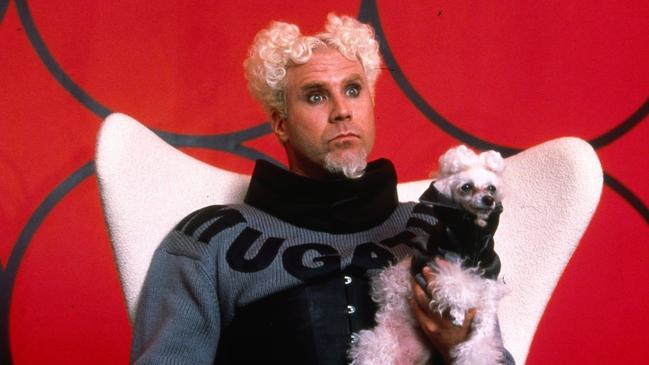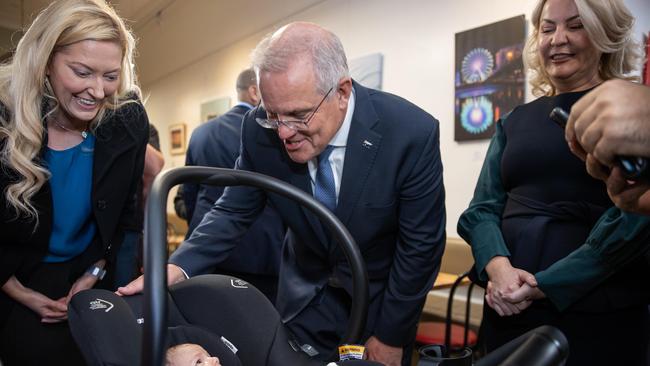Christopher Pyne: Arguments about voting against the Liberals to make the party more progressive are illogical
If you want a more centrist Liberal Party, you need to vote for candidates like Rachel Swift in Boothby and James Stevens in Sturt, writes Christopher Pyne.
Opinion
Don't miss out on the headlines from Opinion. Followed categories will be added to My News.
Like the character Mugatu, played by Will Ferrell in the mega hit Hollywood movie Zoolander, I felt like I was taking “crazy pills or something” during an exchange with a voter at Kingsford Smith Airport in Sydney last Thursday.
They were perfectly polite and proceeded to explain to me how, as a small “l” liberal voter, they felt it was a smart idea to vote against their local Liberal member of Parliament, despite that member being a moderate Liberal, because that would help the Liberal Party move closer to the centre of the political spectrum.
What?
So, that logic goes like this: to make the Liberal Party more centrist, it would help to extinguish centrists in the Liberal Party. OK …
That’s like saying: “To make our sporting club more diverse, we need to recruit more Anglo-Celtic background players.”

The opposite is true. If you want the Liberal Party in Canberra to be more centrist than conservative, you need to vote for the Liberals running near you with a centrist perspective.
In South Australia, that’s Dr Rachel Swift, who is the Liberal running for Boothby, and James Stevens MP, who is the Liberal running in Sturt.
Both are centre rather than right-wing candidates who believe in action on climate change, social justice for those in need, tolerance of diversity and investment in our communities to make them better places to live, work and play.
Even if you want to vote Green or independent in Boothby or Sturt, giving Swift or Stevens your second preference will ensure the continuation of strong representation in the Liberal partyroom of voices from the political centre.
That will be the case regardless of whether the Coalition or Labor wins this Saturday, regardless of whether we have a continuation of Prime Minister Scott Morrison or a new man in The Lodge in Anthony Albanese.
Commentators and competitors alike are finding it hard to call this Australian election. The national polls give the election easily to Labor. They have led consistently for the past three years and the dial has hardly shifted in the past five weeks of this campaign.
The most recent Newspoll has Labor tracking on 54 per cent of the two-party preferred vote to the Coalition’s 46 per cent.
On that basis, Anthony Albanese will be the next prime minister.
But talking to friends and former colleagues across the political spectrum – from One Nation, the Nationals, Labor, independents and Liberals – very few are prepared to make a definitive call on the result. The reason is because of the state by state and seat by seat contests that are harder to predict.

While the so called “teal independents” have dominated much of the news cycle in a way that is quite out of proportion to their importance, the other on-the-ground dynamics have largely gone unnoticed.
The consensus is that Labor will do well in Western Australia and South Australia.
In NSW there are seats that Labor will almost certainly gain in western Sydney, but there is still a nagging doubt in Labor circles that they will hold the seat of Gilmore on the state’s south coast.
The NSW Hunter Valley remains a battleground and so too does Tasmania, where the Liberals hope to gain Lyons and hold on to Bass and Braddon.
The Northern Territory is hard to predict and both leaders have spent more time there than they normally would in an election campaign, which suggests to me that the seat of Lingiari is in play. But it’s a vast seat covering almost the entire Territory so it’s very hard to poll. The same is true for the seat of Grey, which covers 90 per cent of South Australia.
In Victoria the battle centres on Chisholm and Corangamite. Both are marginal seats and both regularly change hands. Are they likely to change again? If they do, it will mean a status quo result in Victoria.
That leaves Queensland. Five weeks ago, political pundits predicted if Labor had any chance of winning they must win big in Queensland. Will they?
There are many seats in Queensland and Morrison and Albanese have spent a lot of time in the state. Labor is campaigning in seats in Far North Queensland and Central Queensland that they haven’t held in years.
Those Queenslanders have been suspicious about what a left Labor government would do to their industries and have shied away. It remains to be seen whether Labor’s small-target strategy has done enough to assuage their doubts.
There are also seats in Brisbane that could fall to Labor.
When Kevin Rudd beat then-prime minister John Howard in 2007, it was because of Queensland seats falling like nine pins to Labor.
If Labor wins in 2022, it will be because they win enough seats in Queensland.
All of this will be resolved next Saturday.
I’ve got to tell you, I don’t miss the stress of being a candidate. While I enjoyed winning nine elections and serving for 26 years, it’s much more relaxing coaching and commenting from the side lines than it is being a combatant.



